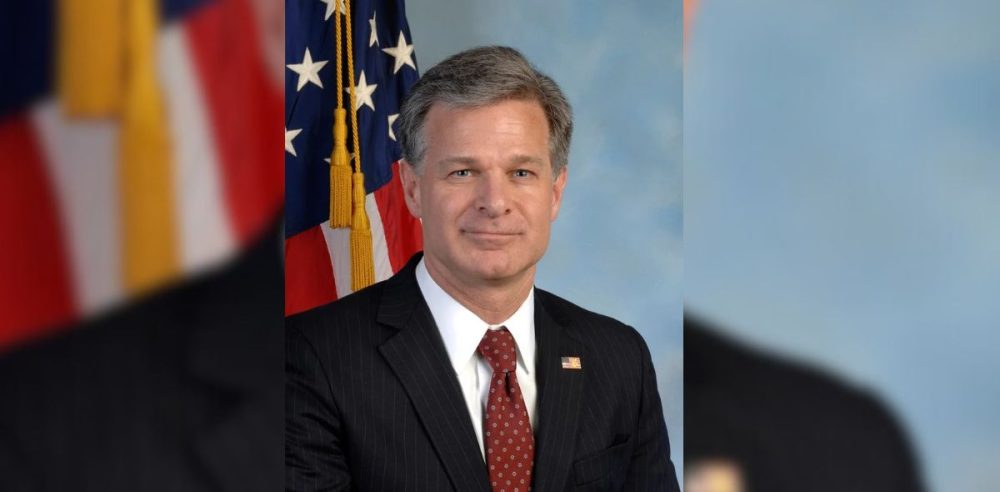FBI Director Christopher Wray has announced his intention to step down at the conclusion of President Biden’s term in January 2025.
The decision comes three years before the scheduled end of his 10-year term, which was designed to insulate the bureau from political influence, reported Fox 4 KDFW.
Wray, who revealed his plans during a town hall meeting with FBI employees, cited “weeks of careful thought” and a desire to avoid dragging the FBI “deeper into the fray” as key reasons for his resignation. The announcement follows President-elect Donald Trump’s declaration that Kash Patel, a loyalist and frequent critic of the FBI, would be his nominee to lead the bureau.
Appointed by Trump in 2017 after the dismissal of James Comey, Wray’s tenure has been marked by high-profile and often politically charged investigations, including probes that led to two indictments against Trump. Despite being selected by Trump, Wray’s relationship with the former president soured over time, especially following the FBI’s search of Trump’s Mar-a-Lago estate in connection with classified documents. Trump’s recent comments reflect this animosity, describing Wray’s resignation as a “great day for America” and a step toward ending the “weaponization” of federal agencies.
Wray’s leadership was tested during the FBI’s handling of the Russia investigation, a probe that became a focal point for criticism from Trump and his allies. Shortly after a scathing inspector general report on the investigation, Wray implemented over 40 corrective actions to tighten oversight of national security surveillance and address mistakes made during the inquiry. While he distanced himself from the investigation, Wray refused to fully align with Trump’s narrative, often delivering measured responses to allegations and rejecting claims that the inquiry was a “witch hunt.”
Throughout his tenure, Wray maintained a delicate balance, occasionally breaking with the Trump administration on key issues. For instance, he countered claims of widespread voter fraud during the 2020 election. Wray’s acknowledgment of Russian interference in the 2020 election contrasted with Trump’s assertion that China posed a greater threat. These moments underscored Wray’s commitment to an independent and fact-based approach, even amid political pressure.
President-elect Trump’s choice of Kash Patel to lead the FBI signals a stark departure from Wray’s leadership style.
Patel, a longtime Trump ally, has been vocal in his criticism of the FBI, particularly its handling of investigations related to Trump. Trump has also announced other controversial appointments, including Florida Sheriff Chad Chronister as the next DEA administrator and Charles Kushner, his son-in-law’s father, as ambassador to France. These decisions reflect Trump’s broader strategy to reshape federal agencies with loyalists.
As the FBI prepares for new leadership under Kash Patel, the agency faces a critical juncture. Wray’s departure underscores the difficulties of maintaining independence in an increasingly polarized political environment.


